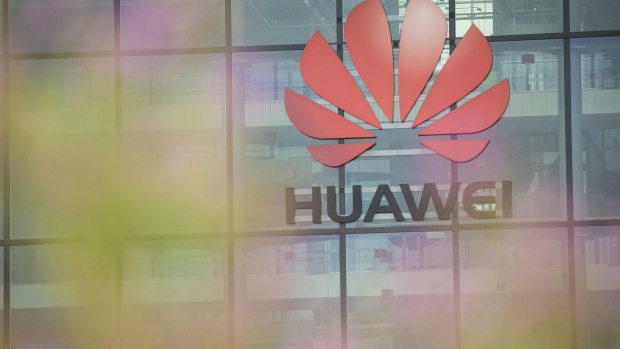Jul 6, 2021
Huawei Takes Patents Brawl With Verizon to a Texas Jury
, Bloomberg News

(Bloomberg) -- Huawei Technologies Co. says it was treated unfairly when the U.S. government labeled it a security threat, yet China’s largest technology company is seeking redress from the American jury system in a major patent fight with Verizon Communications Inc.
A trial is set to being Wednesday in Marshall, Texas, in Huawei’s case against Verizon over claims it is using Huawei’s patented networking technology without a license. It’s the first of two scheduled this year over lawsuits Huawei filed last year against Verizon, the biggest U.S. mobile carrier.
Accusations are being hurled by both of the deep-pocketed companies, illustrating the depth of animosity between them. Verizon says Huawei is using its patented inventions -- not the other way around -- and has accused Huawei of breaching pledges to offer fair and reasonable terms for licensing its technologies.
“These are two large rams with big horns and lots of testosterone and they’re going to butt heads in front of the jury for five days,” said Paul Berghoff, a patent lawyer with McDonnell Boehnen Hulbert & Berghoff, who isn’t involved in the case.
Huawei’s litigation with Verizon is the company’s first attempt to recoup investments after being barred from 5G network buildouts in the U.S. and other nations amid U.S. spying allegations, Bloomberg Intelligence analyst Tamlin Bason said in a note last month. “Similar actions against U.S. carriers and network-equipment makers are possible,” he said.
Huawei has been seeking more than $1 billion from Verizon, though the trial will focus on a small portion of that patent portfolio. The companies haven’t disclosed in court filings how much they are seeking in damages in this trial, and neither would comment before the trial.
The challenge for District Judge Rodney Gilstrap is to keep the trial focused on the question of patents for optical transport network systems, a key technology that enables the rapid transmission of large amounts of data, and not on geopolitical issues.
Huawei has asked the judge to prevent Verizon from bringing up the U.S. government’s labeling of it as a national security threat, the Federal Communications Commission’s blocking subsidized purchases of Huawei gear, and Verizon’s allegations that the suit is retaliation for the government’s actions and Verizon’s decision to not sell Huawei phones.
At the same time, Verizon doesn’t want Huawei to bring up the company’s lobbying efforts, including its push for Senator Marco Rubio, a Florida Republican, to introduce proposed legislation to keep Huawei from collecting patent damages in U.S. courts. That provision never passed into law.Many of the accusations beyond the patent issues are unlikely to be raised before the jury. The trial is scheduled to last only a week and the judge heard several days of arguments over what the jury would be allowed to hear, though his rulings are under seal.
Regardless, the companies bring plenty of baggage into the courtroom.“Are you really going to prevent the jury from knowing this is a Chinese company suing an American company, for example? That’s not possible,” said Kenneth Weatherwax, a patent lawyer at Lowenstein & Weatherwax LLP, who isn’t involved in the case.
On the other side, jurors also can have preconceived ideas about the customer service record of a U.S. cable and phone company such as Verizon, he said. “So it remains to see which side the jury might have a more visceral reaction to.”
Patents and Politics
The key issues the jury has to decide are whether Verizon infringes three Huawei patents, whether Huawei infringes two Verizon patents, and whether Huawei’s initial royalty demand complies with the obligation of all owners of standard-essential patents to license their inventions on “fair, reasonable and non-discriminatory” terms.
Huawei says its three patents in the case are critical components of the International Telecommunication Union’s G.709 industry standard for the networks. It accused Verizon of refusing to even discuss a license even though the standard helps the New York-based company with more efficient networks.
Verizon said Huawei’s demands were too high. Verizon also claims Huawei is using two of its patented inventions for the optical networks. Those Verizon patents are not essential components of the standard, so there would be no limit on possible damages.The two sides are “scratching and clawing for data” that can alter the dynamics in negotiations, Weatherwax said. “The idea is that if you can get a big verdict on just these few patents, it has to color the negotiations for the whole shebang.”
A second case, in which Huawei accuses Verizon of infringing patents for network infrastructure, including routers, and Verizon’s Smart Family and One Talk applications, is scheduled for trial in October in Waco, Texas.
Huawei previously sued T-Mobile USA Inc. after licensing talks failed. The companies settled their patent fight in 2017 and Huawei has since been indicted by the U.S. on charges that include allegations it stole a secret T-Mobile phone-testing robot.
Sanctions and Combative Stance
Shenzhen-based Huawei is one of the world’s most prolific patent holders, with more than 80,000 worldwide and 10,000 in the U.S. alone, the company has said. The company received 3,178 U.S. patents last year, making it the seventh-highest recipient of patents and ahead of American innovation juggernauts like Microsoft Corp. and Apple Inc., according to figures compiled by the Intellectual Property Owners Association.While Huawei has said it won’t weaponize its large portfolio of patents, the cases are seen as fresh sign of Huawei’s increasingly combative stance toward U.S. companies in the wake of crippling sanctions from Washington.
The cases are Huawei Technologies Co. v Verizon Communications Inc., 20-30, U.S. District Court for the Eastern District of Texas (Marshall), and Huawei v. Verizon, 20-90, U.S. District Court for the Western District of Texas (Waco).
©2021 Bloomberg L.P.





